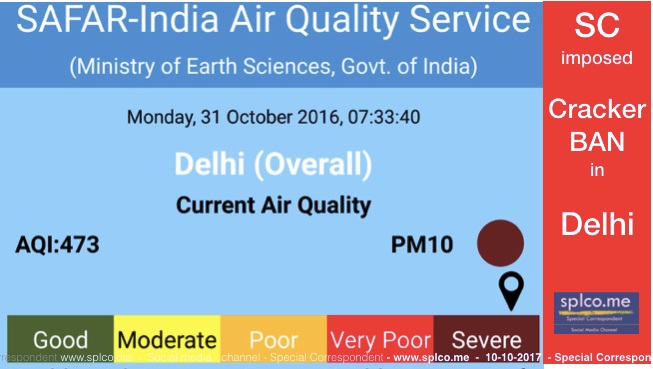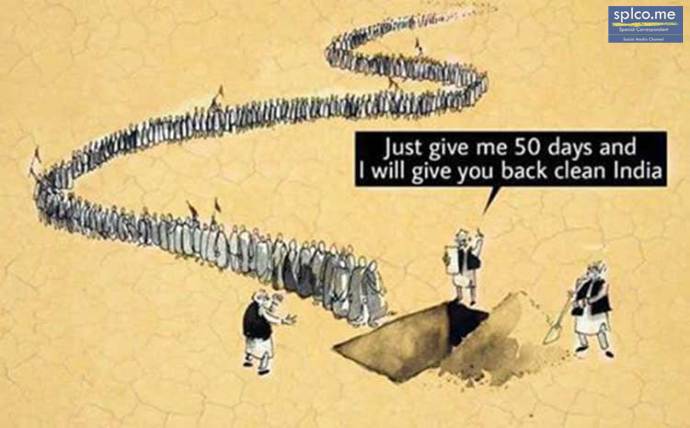The Supreme Court reinstated on Monday its ban on the sale of firecrackers in and around New Delhi ahead of Diwali, in a preemptive step to stop a toxic haze from engulfing the region like last year.

On Monday, a top court bench headed by Justice AK Sikri postponed implementing its September order while accepting a plea from three children for reinstating the ban. The court said the ban runs until November 1.
Earlier year a day after Diwali, the levels of particulate matter (PM) 10 and 2.5 in Delhi were recorded at severe levels of 836.1µg/m³(over eight times the safe limit) and 624.2µg/m³ (nearly 10 times the safe limit) on Monday evening, according to the System of Air Quality and Weather Forecasting and Research (SAFAR) of the Union ministry of earth sciences.
The city of more than 20 million people struggled with its worst air pollution for two decades, shrouded in smoke from millions of fireworks lit during the festival, burning of crop residue in neighbouring states before winter, vehicle exhaust and construction dust.
The court then banned the sale of firecrackers, but relaxed the restrictions on September 12 this year after a plea from fireworks manufacturers. The court said a complete ban would be a “radical step”.
But there is no prohibition on lighting celebratory firecrackers or their sale outside the National Capital Region, which includes the Capital and satellite cities Gurgaon, Faridabad, Noida and Ghaziabad.
People who have already bought fireworks can use them, but new ones cannot be sold.
The children contended that curbs were imposed after Diwali last year and the effect the firecrackers had on New Delhi’s air pollution wasn’t tested.
The court said the impact of the ban on the region’s air quality would have to be examined after Diwali. It also suspended all temporary trade licences issued by police for selling fireworks.
“We are of the view that the order suspending the licences should be given one chance to test itself in order to find out as to whether there would be positive effect of this suspension, particularly during Diwali period,” the court ordered.
The Central Pollution Control Board (CPCB) supported the ban, as did global environmental group Greenpeace, which tweeted: “This is a nice step, let us look at other sources of #airpollution too.”
Every year, in the days following the festival, city hospitals report a spike in respiratory and asthma cases and many people find it difficult to breathe. The onset of winter usually worsens the situation as cooler temperatures trap the pollutants, exacerbated by farm burning.
India’s poor air quality causes over one million premature deaths every year, according to a joint report by two US-based health research institutes earlier this year.














